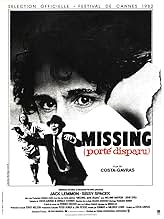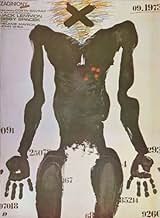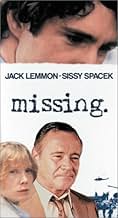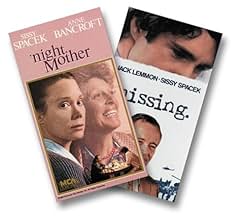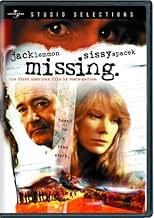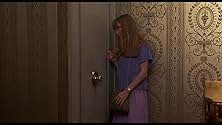When an idealistic American writer disappears during the Chilean coup d'état in September 1973, his wife and father try to find him.When an idealistic American writer disappears during the Chilean coup d'état in September 1973, his wife and father try to find him.When an idealistic American writer disappears during the Chilean coup d'état in September 1973, his wife and father try to find him.
- Won 1 Oscar
- 12 wins & 23 nominations total
Martin LaSalle
- Paris
- (as Martin Lasalle)
Storyline
Did you know
- TriviaDuring the Pinochet dictatorship, which ran from 1973 to 1990, this picture was banned in Chile.
- GoofsIn the scene where Jack Lemmon is at the State Department early in the movie trying to get information about Charlie, there is the presidential portrait of Richard Nixon on the wall in the background and a more personal photo of him on Marine One on the credenza behind the desk. That photograph, with fingers in the V-peace sign, was taken upon his final departure from the White House in 1974 and could not have been on someone's desk in 1973.
- SoundtracksMy Ding a Ling
(1952)
Written by Chuck Berry (uncredited)
Performed by Chuck Berry
Courtesy of All Platinum Records, Inc.
Featured review
Missing tells the true story of Charlie Horman, an idealistic writer who disappeared in Chile after the U.S.-backed military coup of 1973. It's told primarily through the perspective of Horman's father Ed, played by Jack Lemmon, who joins up with his daughter-in-law Beth (Sissy Spacek) to try and find Charlie amidst the chaos of a nation in turmoil. The hunt for Charlie is never particularly engaging or mysterious, especially if you know the ultimate fate of their search going in, but what the film excels at is adding the human element to this kind of personal tragedy.
Directed by Costa-Gavras, Missing is a film that seems to care more about informing the world of this gross injustice, rather than do anything particularly entertaining for it's audience. Opening with the statement that the events of the film are true and left unchanged, there is certainly an air of importance added to their search, always leaving the audience aware of the real life consequences of this crime. It's a condemnation of government and negligence, much like Gavras' earlier film Z, but it's much more about the emotional conflict of Ed Horman than it is about trying to thrill it's audience.
Beth and Charlie were idealists, some could even say radical liberals, but Ed was a very conservative man who shunned their attacks on the government. He was a man who believed in what his nation stood for and through the beginning of the film he is constantly giving them the benefit of the doubt, trusting that they are not being lied to. The brilliant evolution that occurs in this film is in the way that Ed slowly comes around more to Beth's way of thinking; they start off on opposite sides but gradually come together as he begins to form a distrust in the U.S. government in Chile and a rage inside of him grows.
Lemmon's performance stands among his best, slowly developing a more angered and combative streak in Horman, but never losing sight of the fact that this is ultimately just a man who wants his son back. There's a scene late in the film where he is pleading for his son, practically on his hands and knees, not caring if he is dead or alive he just wants his son so he can return home, that is absolutely devastating. Lemmon and Gavras succeed admirably in bringing this heartbreaking story to the public eye, made even more wrenching when the final truth is revealed (or even more so if you read up on the events that occurred after the film was released).
Directed by Costa-Gavras, Missing is a film that seems to care more about informing the world of this gross injustice, rather than do anything particularly entertaining for it's audience. Opening with the statement that the events of the film are true and left unchanged, there is certainly an air of importance added to their search, always leaving the audience aware of the real life consequences of this crime. It's a condemnation of government and negligence, much like Gavras' earlier film Z, but it's much more about the emotional conflict of Ed Horman than it is about trying to thrill it's audience.
Beth and Charlie were idealists, some could even say radical liberals, but Ed was a very conservative man who shunned their attacks on the government. He was a man who believed in what his nation stood for and through the beginning of the film he is constantly giving them the benefit of the doubt, trusting that they are not being lied to. The brilliant evolution that occurs in this film is in the way that Ed slowly comes around more to Beth's way of thinking; they start off on opposite sides but gradually come together as he begins to form a distrust in the U.S. government in Chile and a rage inside of him grows.
Lemmon's performance stands among his best, slowly developing a more angered and combative streak in Horman, but never losing sight of the fact that this is ultimately just a man who wants his son back. There's a scene late in the film where he is pleading for his son, practically on his hands and knees, not caring if he is dead or alive he just wants his son so he can return home, that is absolutely devastating. Lemmon and Gavras succeed admirably in bringing this heartbreaking story to the public eye, made even more wrenching when the final truth is revealed (or even more so if you read up on the events that occurred after the film was released).
- Rockwell_Cronenberg
- Mar 9, 2012
- Permalink
Details
- Release date
- Countries of origin
- Languages
- Also known as
- Vermisst
- Filming locations
- Acapulco, Guerrero, Mexico(as Vina del Mar)
- Production companies
- See more company credits at IMDbPro
Box office
- Budget
- $9,500,000 (estimated)
- Gross US & Canada
- $14,000,000
- Gross worldwide
- $14,000,000
- Runtime2 hours 2 minutes
- Color
- Aspect ratio
- 1.85 : 1
Contribute to this page
Suggest an edit or add missing content



